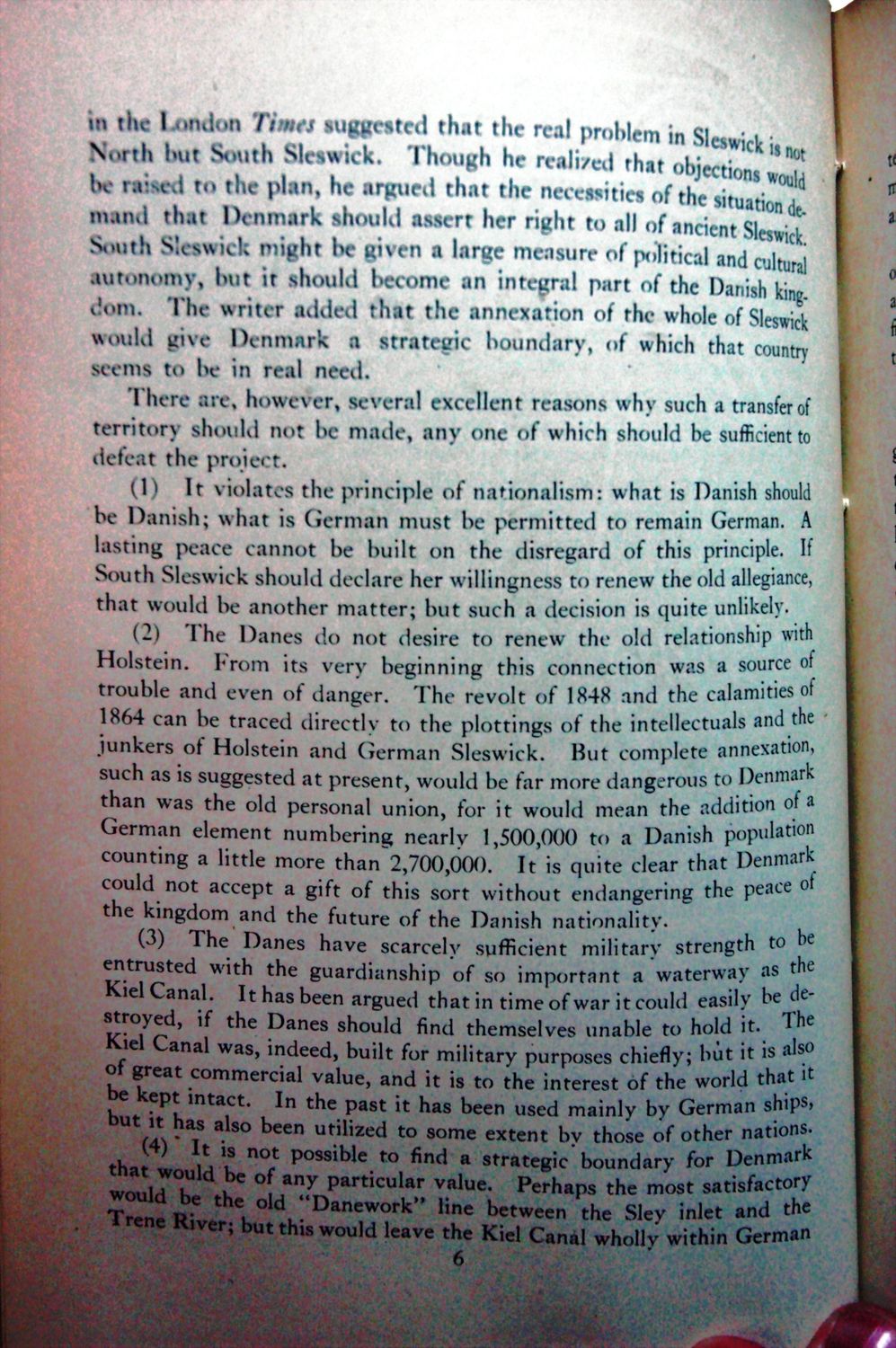| |
| |
Caption: War Publications - WWI Compilation 1923 - Article 20
This is a reduced-resolution page image for fast online browsing.

EXTRACTED TEXT FROM PAGE:
tiu I .n,fca Times suggested that the real prohlem in SU™ t • 0t orth but South Sle*u k. Though he reali/cd that objection '*° : taiMd tn the plan, he argued that the necessities of the situatT? Denmark should assert her right to all of ancient Sleswick South S!es " c l c m,K'hr ! * given a large measure of political and cultural autonomy, hut a should become an integral part of the Danish king Join. The writer added that the annexation of the whole of Sbwid would give Denmark a strategic boundary, of which that country seems to he in real need. se territory shouKl not he made, any one of which should be sufficient to defeat the proieet. f he Danish; what is German must be permitted to remain German. A lasting peace cannot he built on the disregard of this principle. If South Sleswick should declare her willingness to renew the old allegiance, that would be another matter; hut such a decision is quite unlikely. (2) 1'he Danes do not desire to renew the old relationship with Holstein. From its very beginning this connection was I source of trouble and even of danger. The revolt of* 1848 and the calamities of 1864 can be traced directly to the plottings of the intellectuals and the • junkers of Holstein and German Sleswick. But complete annexation, such as is suggested at present, would be far more dangerous to Denmark than was the old personal union, for it would mean the addition of a German element numbering nearlv 1,500,000 to a Danish population counting a little more than 2,700,000. It is quite clear that Denmark could not accept a gift of this sort without endangering the peace of the kingdom and the future of the Danish nationality. (3) The Danes have scarcelv sufficient military strength to he entrusted with the guardianship of so important a waterway as the Kiel Canal. It has been argued that in time of war it could easily be destroyed, if the Danes should find themselves unable to hold it. The Mel Canal was, indeed, built for military purposes chiefly; but it is also ot great commercial value, and it is to the interest of the world that it oe kepi: intact. In the past it has been used mainly by German ships, ut it has also been utilized to some extent bv those of other nations. n o s s i b l e t o fi tha; \\ ? °t P "d « strategic' boundary for Denmark n y articular wouUk T °f / P value. Perhaps the most satisfactory d DaneWOrk,, Hne b e t w e e n TreneRfv I ^." the Sley inlet and the rene R l v e r ; but thus would leave the Kiel Canal wholly within German 1 t •<il
| |